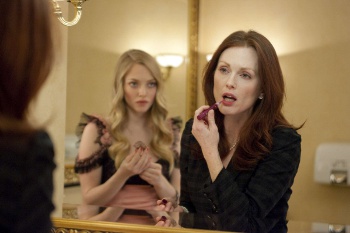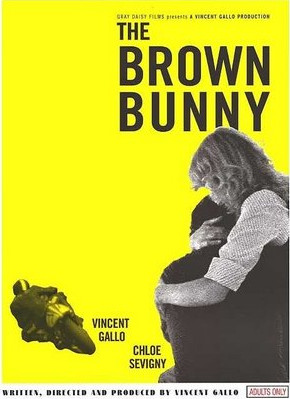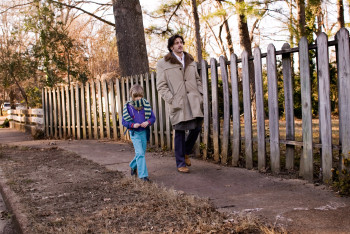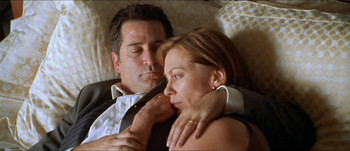Looking Forward
 Atom Egoyan has been on some kind of losing streak. Since his breakthrough masterpiece The Sweet Hereafter in 1997, his fiction features have gone from dense and compelling if awkward psychological dramas. With the caveats that it’s a remake and not written by Egoyan, Chloe seems to chart a new path for the filmmaker, even though it collapses in a fit of silliness just as it threatens to become probingly nasty.
Atom Egoyan has been on some kind of losing streak. Since his breakthrough masterpiece The Sweet Hereafter in 1997, his fiction features have gone from dense and compelling if awkward psychological dramas. With the caveats that it’s a remake and not written by Egoyan, Chloe seems to chart a new path for the filmmaker, even though it collapses in a fit of silliness just as it threatens to become probingly nasty.

 The Brown Bunny
The Brown Bunny  It is a car salesman that carries writer/director Kirt Gunn’s Lovely by Surprise on his shoulders until the movie blossoms. To his credit, Bob doesn’t actually sell cars. In the automobile-sales process, he dispenses hackneyed life advice, admonishing his customers that they need to spend more time with their families, and do they really want to part with that old clunker, filled as it is with memories? He is played with sincerity by Reg Rogers, in the sense that Bob means everything he says. But there’s a fakeness, a performance, about Bob – a smiling, cheery devil-may-care mask that makes him both inscrutable and intensely compelling. A
It is a car salesman that carries writer/director Kirt Gunn’s Lovely by Surprise on his shoulders until the movie blossoms. To his credit, Bob doesn’t actually sell cars. In the automobile-sales process, he dispenses hackneyed life advice, admonishing his customers that they need to spend more time with their families, and do they really want to part with that old clunker, filled as it is with memories? He is played with sincerity by Reg Rogers, in the sense that Bob means everything he says. But there’s a fakeness, a performance, about Bob – a smiling, cheery devil-may-care mask that makes him both inscrutable and intensely compelling. A 
